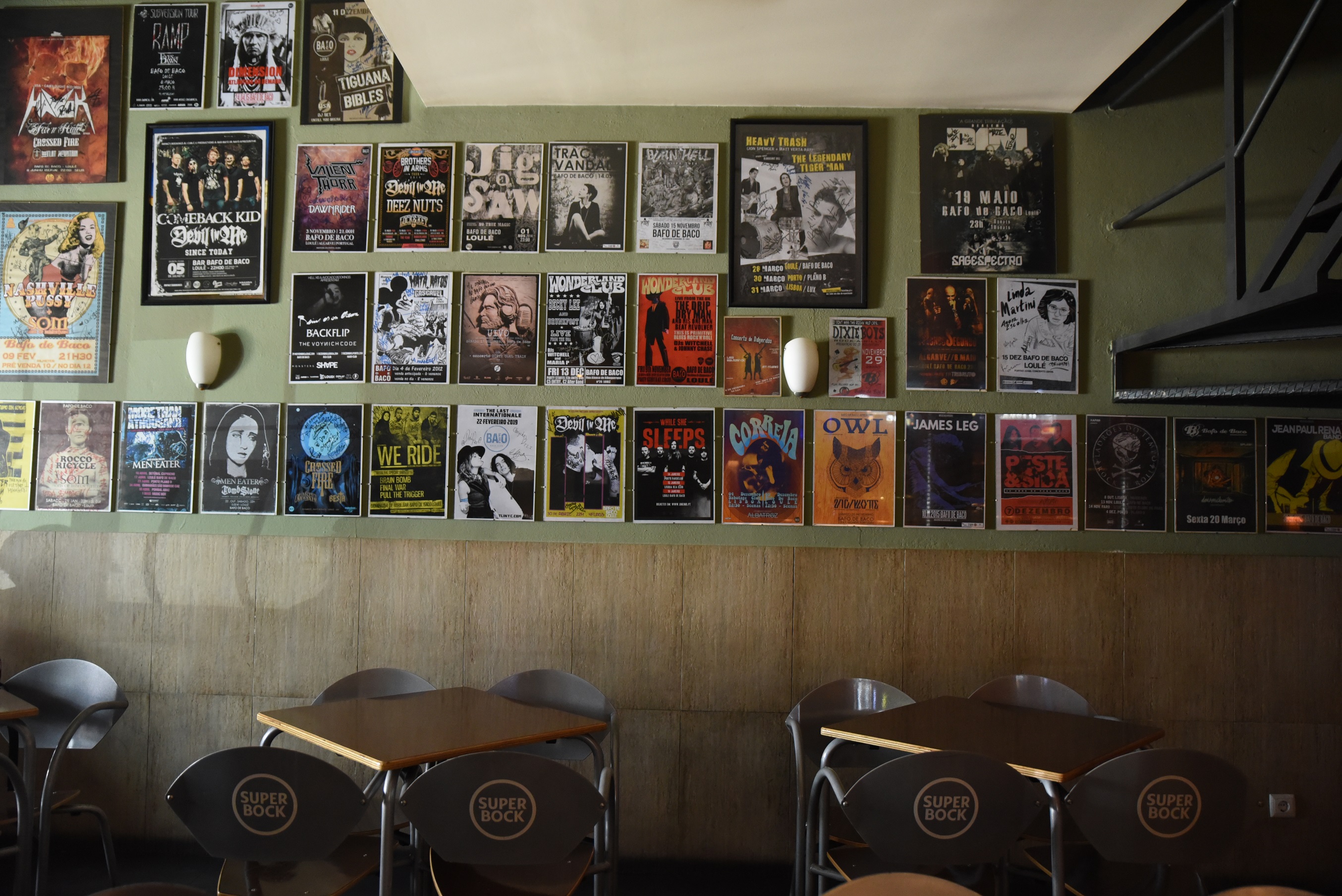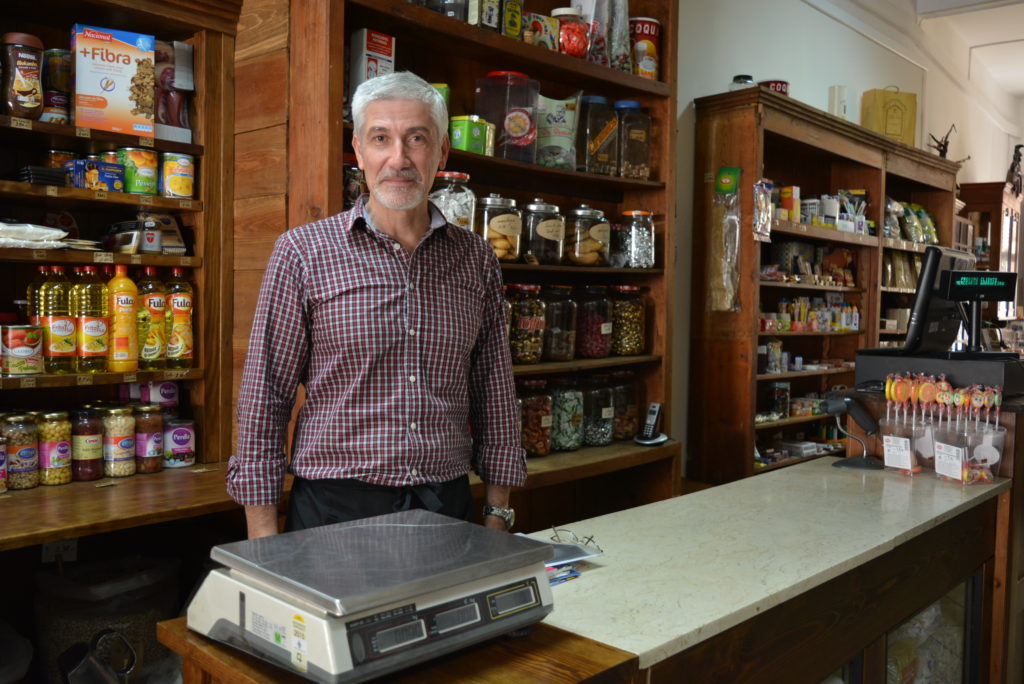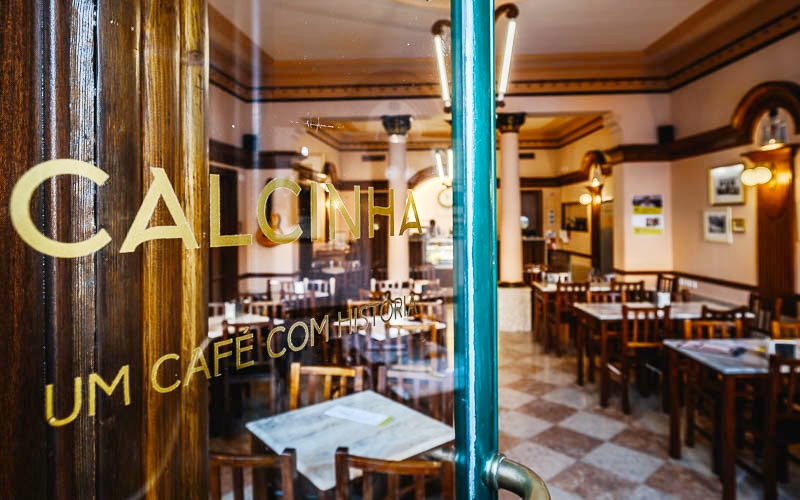The Bafo de Baco bar, the Café Calcinha and the Mercearia Portuguesa, known as Mercearia do Batepézinho, are three spaces in Loulé that integrate the “Trade with History” platform.
«In addition to the integration on the platform, with this recognition, establishments will have a label placed in their spaces, symbol of the valorization that is intended to be given to these identity buildings for the Loulé community», says the Câmara de Loulé.
After this first experience, other establishments in the municipality of Loulé are expected to be included on that platform as a means of enhancing Cultural and Heritage Tourism in the Algarve.
For city officials, the integration of these three spaces in the “Commerce with History” project is part of the municipality's strategy that, over the years, through various initiatives such as the Christmas entertainment program, the “7 Quintas”, “A Praça é Nossa!”, events such as the Noite Branca or the MED Festival and many other activities, “has contributed to promoting the city's commerce, creating a new economic and social dynamic here”.
On the other hand, “it is yet another contribution to the enhancement of the heritage and human wealth of the city of Loulé, where tradition continues to be well present in each of these spaces, whether in the emblematic Café Calcinha, a meeting point for many Loulé residents throughout decades, from Mercearia Casa Portuguesa, where products that take us back to other times are still sold today, or from the iconic bar Bafo de Baco, a space that has been part of many national musical itineraries and has made known countless bands».

Starting with Breath. This is a bar that has been open since October 1992 and, since then, it has established itself as a reference room in live music. It works as a bar on normal weekdays and usually on Saturdays as a concert hall.
Located in the center of Loulé and in the most important commercial hub, Café Calcinha was for the last century, and until today, a sociocultural landmark for the local population and all visitors, being the only gathering space in the city's history. , which gave it the privilege of being the most emblematic and referenced establishment in local history.
Over the decades and in the course of its already long history (it was established on August 27, 1927), many were the important names of the town who frequented it, and moreover the stories were told there, from generation to generation, among the get-togethers, cafes, medronho, capilé or ginjinha and cigarillos or ounces of tobacco.
It included prestigious figures in public life in Loulé and in Portugal, including Frutuoso da Silva, Bernardo Lopes, Bexiga Peres, Pedro de Freitas, Reais Pinto, José Inês or Joaquim Magalhães.
But none of them, however, had achieved the notoriety of António Aleixo, who stood out for his biting and subtle retorts in loose and wise blocks; a bronze statue by Lagoa Henriques was placed on the outside.
Finally, Mercearia Casa Portuguesa, known in the community as Mercearia do Batepézinho, is a traditional grocery store that has had its doors open since 1908. However, since 1965 it has been operating at the same address (R. José Fernandes Guerreiro). The establishment, which already has three generations behind the counter, remains faithful to its way of serving and the traditionality of its items, with items that cannot be found in large supermarkets.
In 2011, the store was remodeled by the current owner, grandson of the founder, who renovated it in a contemporary environment without losing its traditional character and is today a point of interest for tourists visiting the city.
This “Commerce with History” platform, of the General Directorate of Economic Activities, encompasses, in this initial phase, 206 establishments in the country, aiming at the protection and promotion of these spaces of historical, cultural or social interest, whether old or more recent, and that are part of the identity of cities, of the daily routine of neighborhoods.
They have the advantage of having a personalized service, many of them have a long history that is identified in architecture, furniture or decoration, and have been passing through time thanks to the passion of their owners.




















Comments